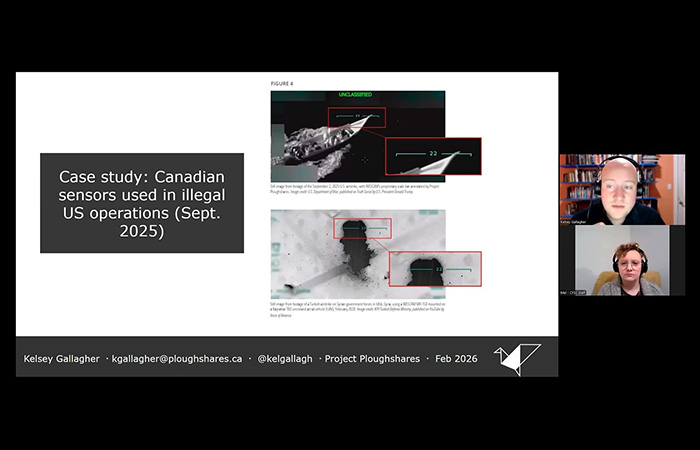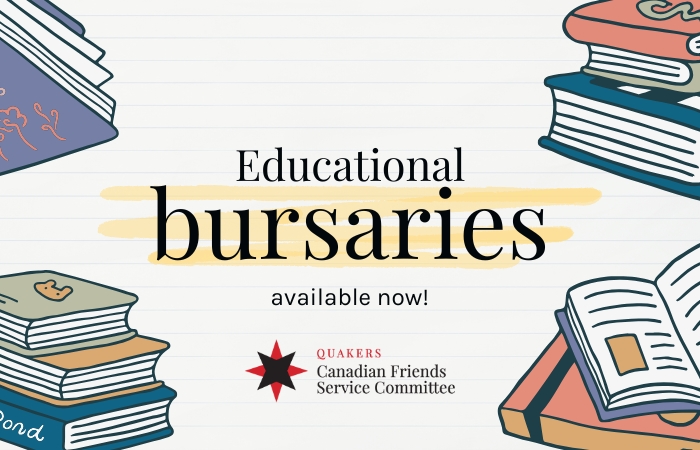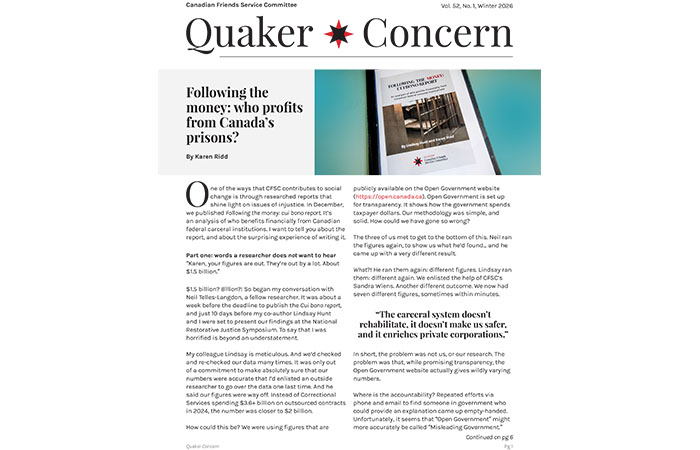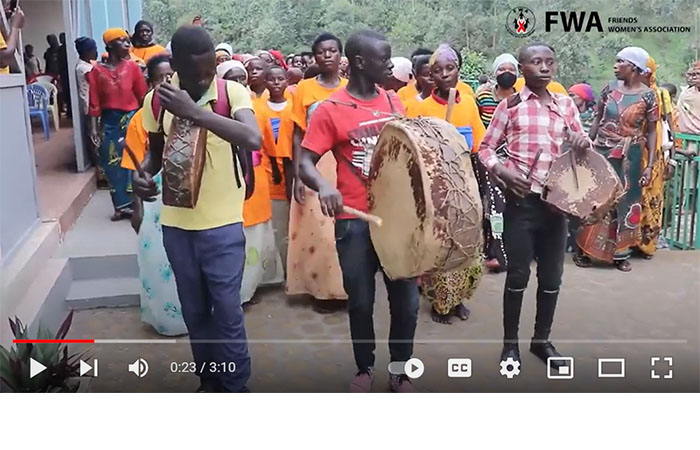
Friends Women’s Association works to stop gender-based violence in Burundi
February 16, 2022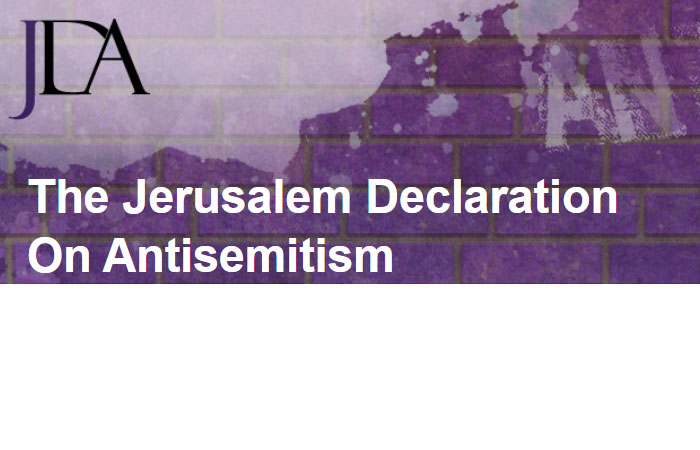
CFSC endorses Jerusalem Declaration on Antisemitism
February 25, 2022Update: Our hearts go out to all of the people currently suffering from violence in Ukraine. We condemn Russia’s invasion of Ukraine and continue to recognize that war is devastating and futile. Diplomacy and a negotiated political solution are absolutely essential.
At Canadian Friends Service Committee we sometimes reflect on and speak to the policies of the government of Canada on various issues. Our focus is on actions by Canada and not on other governments. Our work is not about analyzing history or geopolitics or assigning blame—it is solely about promoting positive peace. Our open letter to the government of Canada, sent on February 18 prior to the Russian invasion of Ukraine, and reprinted below, outlines what we call on Canada to do in this complex and urgent situation. Please also read our statement Russia has invaded Ukraine. What are alternatives to a military response?
Anita Anand, Minister of National Defense
Mélanie Joly, Minister of Foreign Affairs
Dear Ministers Anand and Joly,
Canadian Friends Service Committee, the peace and social justice arm of Quakers in Canada, has watched with dismay the deteriorating situation in Ukraine. Our beautiful and fragile planet cannot afford an intensified war, much less one involving nuclear powers. Please stop thinking of the tool of “hard power” as one you can reach for yet again.
War is a futile problem-solving strategy. It does not lead to peace, democracy, or security. Its predictable failure comes at tremendous cost to human lives, development, and wellbeing. The only beneficiaries are a small number of corporations and other war-profiteers. Please stop and recall the spectacularly costly and brutal human-made disasters that were Canada’s bombing of Libya and protracted involvement in Afghanistan.
We are disturbed that lessons have not been learned and once again we see a stream of “enemy images” circulating in Canadian media and from some politicians speaking about Russia. We are clear that Russia is not our enemy. Russia is not “the problem” here. As with all large-scale conflicts, there is a whole dynamic system of causes, never one. That dynamic system will be interpreted very differently by different actors.
To Canada, Russia’s actions in Crimea and in moving troops to its border with Ukraine appear hostile. To Russia, the actions of NATO, such as expansion eastward to incorporate countries that share a border with Russia (Lithuania, Latvia, and Estonia) and to discuss adding Ukraine and Georgia appear like clear provocations and threats to its security. These actions were taken in spite of NATO members having previously assured Russia that there would be no expansion east of Germany.[1] A foreign military alliance that Canada perceived to be hostile seeking to admit countries in the Americas and to amass military forces along our borders would appear very threatening to Canada.
To see this conflict as a complex system of factors only requires basic empathy—an attempt to open the heart and take a Russian perspective. This is not to say that any actor involved is a purely innocent victim or a purely hostile perpetrator.
Ukraine itself is a deeply divided country with many different groups competing to promote their divergent agendas for the country. These complex divisions have been exacerbated by foreign involvement from the US, Russia, and other governments. The idea of “standing with Ukraine” is thus an overly simplistic slogan that needs to be reconsidered for a complex reality. Simplistic slogans and labels about “good guys” and “bad guys” are not helpful in understanding and transforming dangerous situations like the one playing out now.
Let us not hold fast to the certainty that Canada or its allies are innocently standing up for justice, human rights, or democracy. The more we can let go of these beliefs, the more humility and creative problem solving we can bring to deescalating this situation.
The way that Canada can be useful at this moment is to stand up to hawkish forces within our own country and amongst our allies, to stand up to weapons lobbyists and those who would profit from a horrible war, and to work relentlessly for peace. Canada needs to engage tirelessly in diplomacy. This must include taking the lead in making good will gestures such as:
- Removal of Canadian armed forces from all parts of eastern Europe and ending Operation UNIFIER and all training and funding of the Ukrainian military;
- Ceasing the arms trade between Canada and Ukraine;
- Working with the Ukrainian and Russian regimes to support implementation of the Minsk II agreement, which may need to be updated or adapted as many years have passed since it was negotiated;[2] and
- Calling for a moratorium on new memberships in NATO or stating opposition to Ukraine or Georgia joining NATO and instead calling for them to remain neutral.
Such gestures, engaged in together with clear communication with all actors involved, should help to ease tensions.
This crisis moment highlights the need for Canada to shift its national defence and foreign policies away from the “hard power” focus of Strong, Secure, Engaged.[3] Canada should drop all plans to procure new fighter jets, drones, and warships that are principally for offensive engagement in foreign wars. Canada must strictly apply the Arms Trade Treaty that it has acceded to.[4] Canada must champion the abolition of nuclear weapons through the Treaty on the Prohibition of Nuclear Weapons framework.
Canada must build its capacities to pursue peaceful strategies like the ones mentioned above. One way to do this would be to invest in a federal government department that is active in peace promotion.[5]
Let us see what love can do.
In Friendship,
Vince Zelazny,
Clerk, Canadian Friends Service Committee (Quakers)
[1] Svetlana Savranskaya and Tom Blanton, “NATO Expansion: What Gorbachev Heard,” George Washington University, Dec 12, 2017, https://nsarchive.gwu.edu/briefing-book/russia-programs/2017-12-12/nato-expansion-what-gorbachev-heard-western-leaders-early
[2] “Package of Measures for the Implementation of the Minsk Agreements,” Feb 12, 2015, https://peacemaker.un.org/sites/peacemaker.un.org/files/UA_150212_MinskAgreement_en.pdf
[3] Government of Canada, “Strong, Secure, Engaged: Canada’s Defence Policy,” 2017
[4] See https://quakerservice.ca/ArmsTradeTreaty for our views on this
[5] See https://CanadianPeaceInitiative.ca
Download this open letter in PDF. Learn more about CFSC’s peace work.


